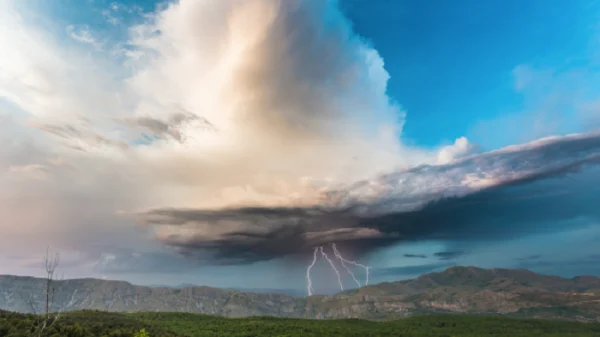Extreme weather kills 2 million, costs $4 trillion in 50 years: WMO

- Update Time : Tuesday, May 23, 2023
- 52 Time View

Extreme weather events accelerated by man-made global warming caused 11 778 reported disasters in the last 50 years, with just over 2 million deaths and US$ 4.3 trillion in economic losses,, the World Meteorological Organization (WMO) has said.
Asia saw the highest death toll due to extreme weather, climate and water-related events during the period, with around one million deaths – more than half in Bangladesh alone.
Developing countries were hit hardest, seeing nine in 10 deaths and 60 per cent of economic losses from climate shocks and extreme weather, it said on Monday.
Weather, climate and water-related hazards caused close to 12,000 disasters between 1970 and 2021, according to WMO findings.
WMO said that Least Developed Countries and Small Island Developing States suffered a “disproportionately” high cost in relation to the size of their economies.
“The most vulnerable communities, unfortunately, bear the brunt of weather, climate and water-related hazards,” said WMO Secretary-General Petteri Taalas.
In Least Developed Countries, WMO said that several disasters over the past half-century had caused economic losses of up to 30 per cent of gross domestic product (GDP).
In Small Island Developing States, one in five disasters had an impact “equivalent to more than five per cent” of GDP, with some disasters wiping out countries’ entire GDP.
In Africa, WMO said that droughts accounted for 95 per cent of the reported 733,585 climate disaster deaths.
WMO stressed however that improved early warnings and coordinated disaster management have helped mitigate the deadly impact of disasters. “Early warnings save lives,” Taalas insisted.
The UN agency also noted that recorded deaths for 2020 and 2021 were lower than the previous decade’s average.
Pointing to the example of last week’s severe cyclonic storm Mocha, which caused devastation in Myanmar’s and Bangladesh’s coastal areas, Taalas recalled that similar weather disasters in the past caused “death tolls of tens and even hundreds of thousands” in both countries.
The agency had previously shown that just 24 hours’ notice prior to an impending weather hazard can cut the ensuing damage by 30 per cent, calling early warnings the “low-hanging fruit” of climate change adaptation because of their tenfold return on investment.
WMO issued its new findings on the human and economic cost of weather-induced disasters for its quadrennial World Meteorological Congress, which opened on Monday in Geneva with a focus on implementing the UN’s Early Warnings for All initiative.
The initiative aims to ensure that early warning services reach everyone on Earth by the end of 2027. It was launched by UN Secretary-General António Guterres at the COP27 climate change conference in Sharm al-Sheikh in November last year.
Currently, only half of the world is covered by early warning systems, with Small Island Developing States and Least Developed Countries left far behind.















